ITO Thailand Hygiene Blog
Food Defense
Who can be food terrorists?
Those who intentionally cause this harm or contamination may suffer from business disadvantages, such as employees who have been fired or dissatisfied with the company, contract companies, competitors, or maybe someone with malicious intent to society creating a political situation with an aim for a huge number of sick people and casualties. These people are known as food terrorists. They may come in disguise as employees, factory visitors, freight forwarders, or suspicious parcels, etc. Therefore, the risk of food terrorism must be considered by both national and global organizations, especially at present when products are exported to various countries around the world. Therefore, in developed countries with a high risk of terrorism, such as the United States, it is important to prevent food terrorism and to develop systems to prevent such threats. This affects the entire food supply chain and makes consumers more confident in the safety of the products.
The importance of food defense systems
At present (the year 2021), Thailand does not have a law enforcing food defense, only voluntary application of foreign regulations. The guidelines come primarily from the food defense of the United States Food and Drug Administration (USFDA). It is part of international food standards such as BRCGS, IFS, FSSC 22000, etc. This requires entrepreneurs who want to practice these standards or export to destination countries that focus on food terrorism to develop a system to meet this need. Therefore, in addition to protecting the reputation and preventing monetary losses from food terrorism in the products, a prevention system helps increase distribution channels, boosts confidence, promotes good reputation, and shows social responsibility, encourages food safety and sustainability in the society.
Food defense system
The key to preventing food terrorism is identifying vulnerabilities that are prone to “human” threats and establishing preventive measures for the building structure, the individuals, and the working process so that the entire system is safe. The practice guidelines to control the individuals so that they cannot do any harm, consist of:
- Preparation of a food defense plan in a document form by identifying weaknesses, establishing criteria for severity level, likelihood, and measures to reduce risk to an acceptable level. A responsible team must be set up with support from the management. Measures are tested and reviewed to continuously improve them.
- External security, such as perimeter fencing and fencing maintenance, setting up warning signs, exchange of access control cards, vehicle inspection, lighting system, etc.
- Internal security, such as emergency signals, renovation of layouts, and keeping records of access to different areas, chemicals, and focus on utility control rooms, setting passwords, maintaining confidentiality with high-speed closing doors in an interlock system, etc.
- Security in the production process, such as control of people entering the area, conveying materials from outside, inspecting the conditions of the packaging, the traceability system, etc.
- Storage security, such as making entry and exit logs, packaging lock system, storage cars, regulations for handling chemicals, etc., Importance must be given to both internal and external storage (e.g., warehouses for rent).
- Security in receipt and delivery, such as a lock and seal system, code labeling, vehicle inspection, delivery documents and the condition of the delivered goods, etc.
- Security of water and ice systems, such as controlling access to water, ice, and steam in the factory, water transport inspection, and procurement of reserve water sources, etc.
- Information security, such as setting up areas for mail and parcel delivery outside food production areas, observing suspicious parcels or persons, etc.
- Personnel security, such as pre-employment criminal background check, CCTV installation, identity verification, and access control, random locker check, and organizing training to provide knowledge in observing and reporting abnormalities, etc.
Ito Thailand would like to be a part of supporting the food safety society in Thailand for sustainable growth of the Thai food industry. Follow Ito Thailand at Line @itothailand
Related Post
-
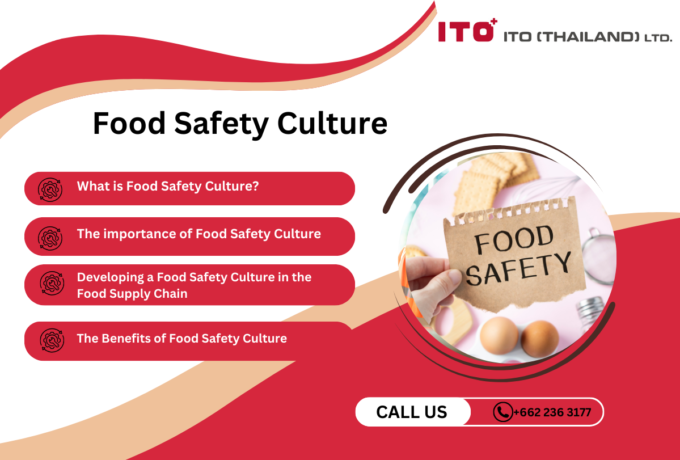
Food Safety Culture
Food safety culture plays a crucial role in safeguarding the company's reputation, ensuring the well-being of its employees, and providing a safe experience for its customers.
-
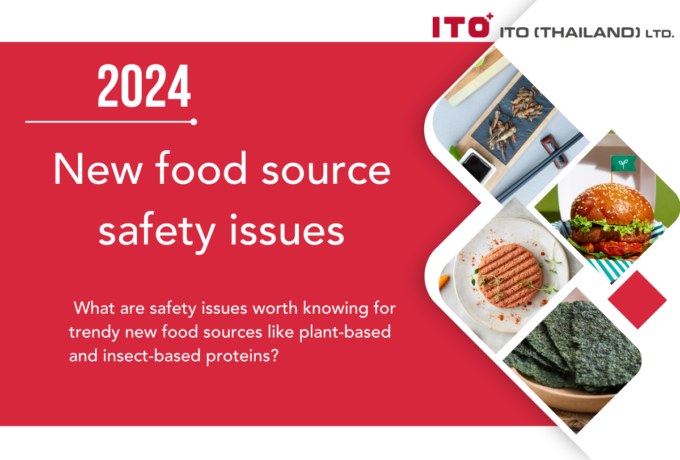
New food source safety issues
What are safety issues worth knowing for trendy new food sources like plant-based and insect-based proteins?
-
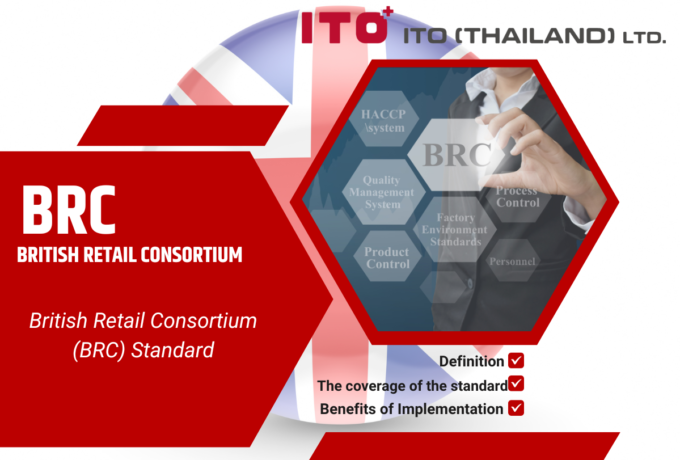
British Retail Consortium (BRC) Standard
Food safety management systems play a vital role in ensuring the production and distribution of safe and high-quality food products to consumers. With the global food supply chain becoming increasingly complex, food businesses must implement effective systems prioritising safety, quality, and compliance with industry standards. A food safety management system encompasses a set of procedures, processes, and controls designed to identify, prevent, and manage potential hazards at every stage of the food production and supply process. This proactive approach not only safeguards consumers' health but also protects the reputation and credibility of food companies in an ever more competitive market.
-
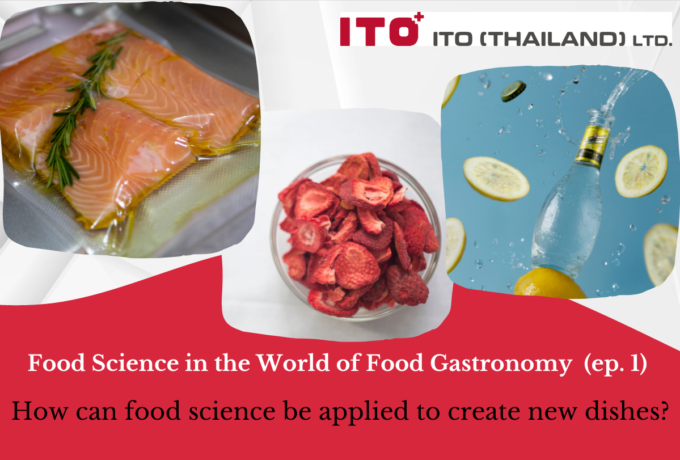
Food Science in the World of Food Gastronomy (Part 1)
How can food science be applied to create new dishes?
-
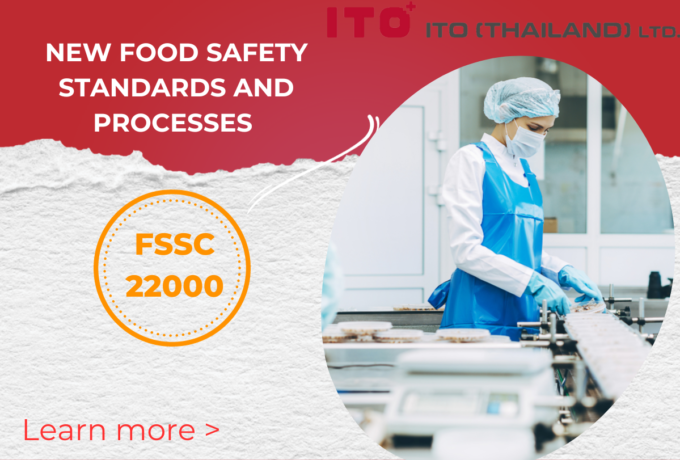
FSSC 22000
Food manufacturers must ensure food safety standards and processes. FSSC 22000 is an official certification program for Food Safety Management Systems (FSMS) recognised by the Global Food Safety Initiative (GFSI). This certification scheme offers a set of guidelines and procedures to ensure uniformity, openness, and safety across your entire supply chain. It applies to all companies operating within the food and beverage industry, ranging from farmers to retailers. By fulfilling the necessary criteria and obtaining FSSC 22000 certification, it is demonstrated that the required standards for food quality and implementing effective processes to manage and mitigate risks associated with food fraud, foodborne illnesses, expensive recalls, and other external threats are met.
-

Food Safety Aspects of Artificial Sweeteners
Artificial sweeteners, also known as sugar substitutes, non-nutritive sweeteners, or high-intensity sweeteners, are artificially produced compounds utilised in place of sucrose (table sugar) to add sweetness to food and drinks. Due to their significantly higher sweetness than regular sugar, only a fraction of artificial sweeteners (200 to 20,000 times less) is required to achieve an equivalent level of sweetness. Since the caloric contribution of these sweeteners, when used in such small quantities, is insignificant, they are often referred to as non-nutritive (4).










